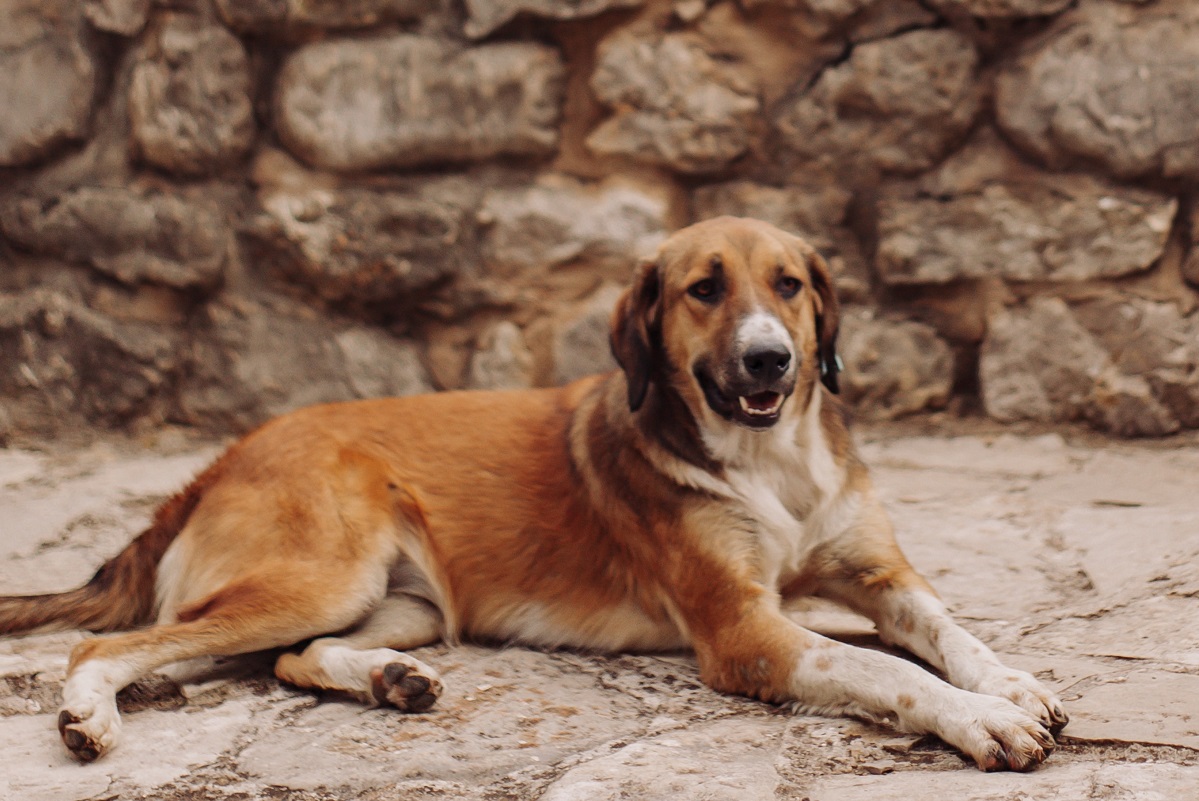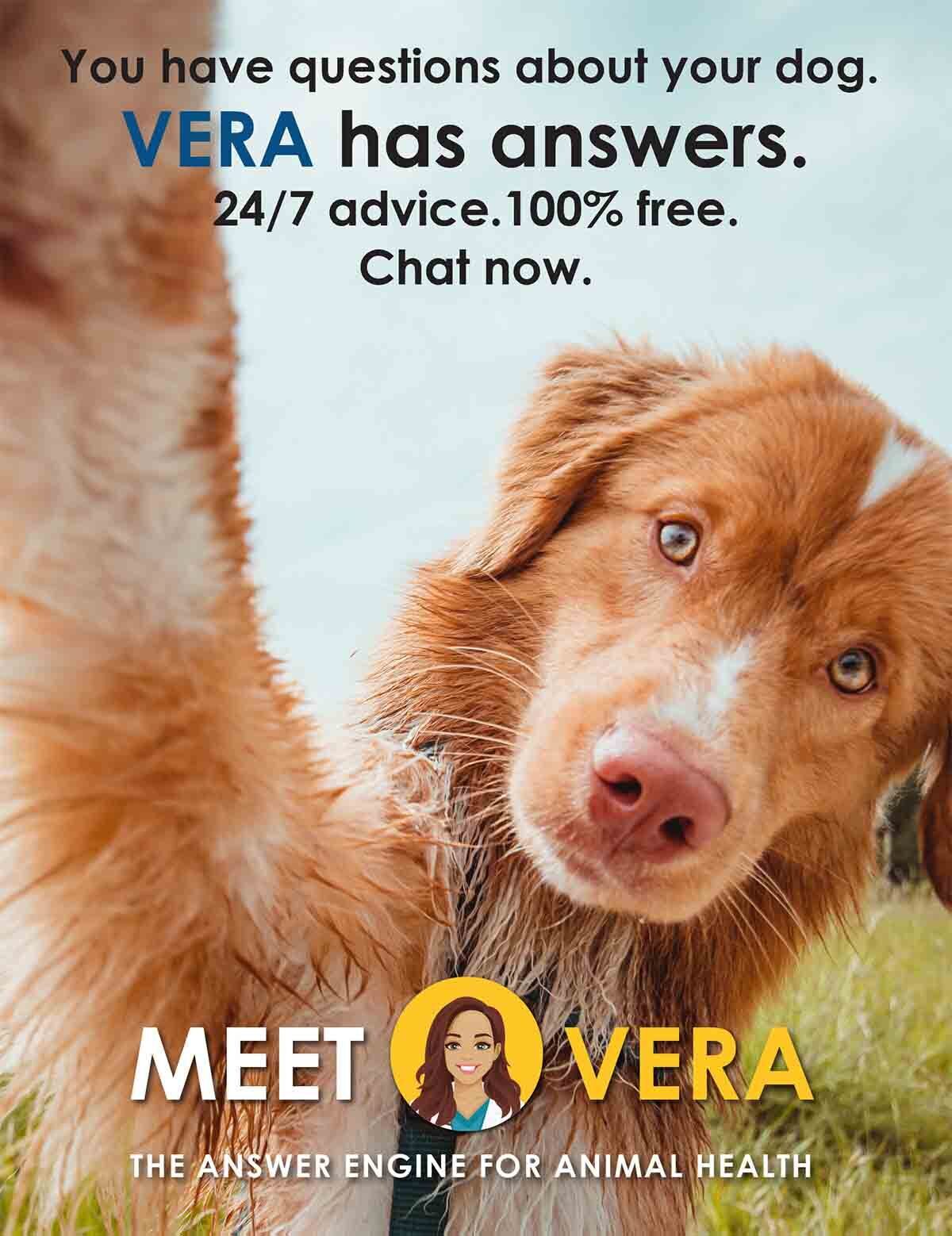Written by: Alexa Waltz
Vaccines are an integral aspect of preventive medical care for dogs and cats and have been administered safely and effectively for decades. Vaccines prevent the transmission of Rabies from pets to people and save countless canine lives from highly contagious and fatal infections like Parvovirus and Distemper Virus. Follow this link for more info about which vaccines are recommended for dogs (LINK: Puppy vaccines).
Just like in people, your canine companion may experience some undesirable and unintended side effects, aka “vaccine reactions”, after they have been given a vaccine. Thankfully though, the vast majority of these reactions are very mild and transient. Your favorite pup may only be down for a short period of time after the appointment before perking up to their happy-go-lucky self hours later or the following day. Dogs very rarely experience severe vaccine reactions. The following is a summary of how to tell what may be a mild vaccine reaction versus a more serious situation requiring immediate veterinary treatment.
AskVet Tip: If your dog has collapsed, is having difficulty breathing, or has facial swelling, seek emergency veterinary care IMMEDIATELY—these patients need life-saving treatment as soon as possible!
Common Mild Vaccine Reactions
Discomfort at the Injection Site
Most dog vaccines are administered with a needle poke through the skin, OUCH! Thankfully though, most dogs will have no reaction at all while others may have some sensitivity at the site for 1-2 days. Your pup may feel sore, have a slight limp, or be protective of the area for 24-48 hours after they received the injection due to the local inflammatory reaction that is taking place. A cold compress, rest, and distractions with food or treats usually does the trick if your dog is feeling uncomfortable. Be especially careful when handling your dog near the shoulder or hip regions — these are the most common areas where vaccines are given and likely to be a bit sore. Typically, the day after the appointment most dogs are back to their normal selves and ready to take on the world!
A Lump at the Injection Site
Vaccines are designed to stimulate the immune system to create long lasting immunity against different viral and bacterial infections. Sometimes that can start with a local inflammatory reaction right at the site where the vaccine was injected. You may feel a small lump, some heat, or swelling in the area where your pup got his shots (usually the hip or shoulder areas). Similar to the discomfort described earlier, this swelling is usually temporary and will decrease after 1-2 days. Occasionally a lump will persist for about a week, but if you are still noticing it two weeks later or longer it is recommended to consult with your veterinarian. If there is any hair loss over the area, scabbing, pus, or fluid oozing, these are more indications that veterinary attention is needed. Skin infections, abscesses, and vasculitis are possible reactions that can take place at the location where the vaccine was given.
Decreased Appetite and Activity Level
Along the same lines as above, vaccines can cause both people and animals to feel a bit cruddy for a period of time following the injection. The activation of the immune system can be accompanied by a fever, fatigue, sore muscles, a decrease in appetite, and an increase in wanting to chill out in their dog bed all day! Sometimes dogs that are ignoring their regular kibble dinner may be enticed to eat a tempting meal of canned food or a bland diet of boiled chicken and rice (LINK: Diarrhea in dogs) during the recovery time. Thankfully, this decrease in energy and appetite is usually temporary and only lasts 1-2 days before they are bouncing around and as energetic and hungry as ever!
Sneezing and Respiratory Symptoms
The Bordetella (“Kennel Cough”) vaccine can be administered as a nasal drop or spray. Occasionally, sneezing, coughing and clear nasal discharge can be seen for a short time following the administration of the intranasal Bordetella Vaccine. Typically this only lasts a few days and the symptoms resolve on their own.
Uncommon Severe Vaccine Reactions
Vaccines are very safe and have been studied in-depth for decades. Occasionally though, a dog may experience a more severe vaccine reaction that requires follow-up care immediately at your vet clinic or even a visit to an emergency hospital if symptoms occur after-hours. The existence of these reactions do not minimize the importance of vaccines, but all dogs should be carefully monitored after vaccinations have been given. Use our guide to familiarize yourself with how to perform a dog physical exam at home and help assess if something may be physically wrong with your dog.
Allergic Reactions – Vomiting and Diarrhea, Hives, Facial Swelling
The vast majority of vaccines will be followed by no or very mild side effects as listed above. In the rare event that the following signs are noted, swift action is recommended.
Signs to watch for indicating a possible emergency situation:
- Facial swelling
- Skin hives and raised welts
- Persistent vomiting and diarrhea
- Breathing difficulty
- Collapse
- Pale gums
- Weak pulse
If you are noticing the above signs within a short period of time after receiving vaccines, your dog may be having a severe adverse vaccine reaction. Depending on what symptoms your dog is experiencing, your AskVet veterinarian can help you assess the situation too, and determine if medical treatment may be recommended before the reaction worsens.
Anaphylaxis – Breathing Difficulty, Weakness, Severe Vomiting, Collapse
Anytime an animal comes in contact with a foreign substance (foods, insects, plants, toxins, vaccines, medications, etc), there is a very small chance they may develop a severe and life threatening allergic reaction called anaphylaxis. Thankfully, anaphylactic reactions to vaccines are very uncommon in dogs, but it can happen. Typically, dogs will start showing signs of anaphylaxis within minutes of being given a vaccine injection, so careful observation for at least 15 minutes after the vaccine is given is always recommended. If your dog is having difficulty breathing, showing weakness, severe vomiting, has pale gums, or collapses onto the ground it is recommended to seek veterinary care right away or consult an emergency veterinary hospital. If your pup is displaying these concerning symptoms (or you are not sure!) your AskVet veterinarian can also help to triage and discuss the next steps.
Treatment for Vaccine Reactions
Dogs that are experiencing an allergic reaction severe enough to need veterinary treatment may typically receive an antihistamine (like diphenhydramine), corticosteroids, intravenous (IV) or subcutaneous fluids, and additional treatments depending on the severity of the situation. It is important that this reaction is noted in your dog’s permanent health record.
Regarding future vaccines, your veterinarian will take into account any past reactions in order to assess the safety of further vaccines. Some vaccine reactions can be avoided by giving a premedication dose of diphenhydramine just before the injections. This antihistamine will help prevent or dampen reactions that have been observed in the past. Drop-off appointments may be recommended for a longer observation period too, in case quick emergency care is needed.
Consult Your Vet For More On Vaccines
Your veterinarian is the best resource to discuss the local risks for viral and bacterial diseases in your area, and the need for certain types of vaccines. They will recommend a dog vaccination schedule (LINK: Puppy Vaccines) appropriate for your pup based on their age, medical history, and environmental risks. For more information about vaccines in general, how your dog is reacting to their vaccines, and what to expect at an upcoming vaccine appointment, our AskVet veterinarians are ready to answer all of your questions!
Our AskVet Veterinarians are available to discuss all of your pet’s needs 24 hours a day, 7 days a week. Whether you have an immediate need or are looking to improve your pet’s overall wellbeing, just sign into your account and one of our friendly and knowledgeable veterinary experts will attend to your needs, no appointment required!
Written by:
Alexa Waltz, DVM
Dr. Waltz was raised near the beaches of Southern California but has spent her adult life living all over the beautiful United States while serving in the military and as a military spouse. She left California for the first time to pursue a career as a veterinarian at Louisiana State University School of Veterinary Medicine and graduated as a Doctor of Veterinary Medicine in 2006. She was accepted into the US Army Health Professionals Scholarship Program during vet school and upon graduation spent her military years as a veterinarian in San Diego working for the US Marine Corps and US Navy Military Working Dog programs as well as caring for pets of service members. After her military service, she became a civilian veterinarian and continued as a small animal general practitioner at clinics in California, Rhode Island, Colorado, and Maryland. Dr Waltz loves to see her “in person” patients just as much as communicating with and assisting pet parents virtually on AskVet. Dr Waltz is also a Mom to 3 humans, 2 guinea pigs, and 1 Australian Shepherd and in her spare time she loves traveling, adventures, exercising, and doing just about anything out in nature!






